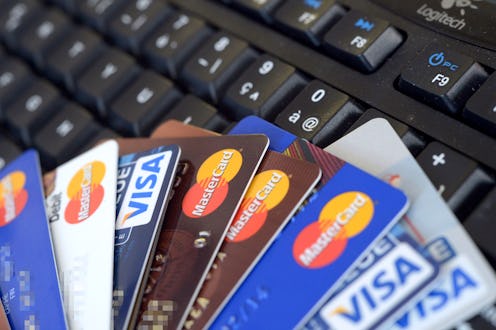
Last week, the credit-reporting company Equifax revealed that it had been subject to a significant hacking attack, potentially exposing the personal identification data of up to 143 million people. Since then, many have been contemplating taking measures to enhance their personal security. For example, some are considering freezing their credit, though others have expressed concerns about the implications of these actions — including wondering whether a credit freeze hurts their credit. Fortunately for those who are considering this option, a freeze will not have any negative implications on your credit score.
Freezing a credit score essentially consists of prohibiting new access to your credit report. Thus, if you were to apply for a new line of credit, like a bank loan or mortgage, while your credit is frozen, new potential creditors would be unable to view your credit report and, therefore, unable to offer you a line of credit. While this may not sound appealing, it's a useful way to help prevent identity theft, as it prevents others from taking out a new line of credit in your name. Moreover, a credit freeze is temporary, meaning you can request to lift the freeze if you need to take out a line of credit.
Very importantly, freezing your credit will not impact your credit score in any way. The Federal Trade Commission's (FTC) consumer information section on its website makes this pointedly clear, directly stating that a credit freeze does not impact your credit score and that it does not inhibit you from acquiring a free annual credit report.
Many experts are indeed recommending that you freeze your credit following the Equifax breach, considering how many millions of people it may have affected. Notably, you can check to see if your data was impacted on Equifax's website, a move some were hesitant to take after reports that doing so may invalidate your ability to participate in a future class-action lawsuit against the company. Equifax, however, has since clearly stated that enrolling in a free credit file monitoring and identity theft protection products in the wake of the breach does not waive anybody's right to join a class-action lawsuit.
According to USA Today, the Equifax breach means that hackers were able to gain access to the "crown jewels" of identification data — Social Security numbers, names, addresses and dates of birth — and thus freezing your credit to protect yourself from identify theft is incredibly important. John Ulzheimer, a credit expert who formerly worked at Equifax, told the paper, "[Credit freezing is] the Fort Knox of credit protection ... A freeze takes your credit report out of circulation."
If you do indeed wish to freeze your credit report, it is a farily straightforward endeavor. To do so, you must contact each of the three main credit reporting agencies — Equifax, Experian, and TransUnion —and request the credit freeze. Typically credit freezes have a small fee associated with them ($5 to $10), though Equifax has agreed to waive the fee after public outcry. You still will likely have to pay the freeze fee for Experian and TransUnion.
If you do freeze your credit and need to lift the freeze for any reason, you simply have to contact the credit reporting company and provide them with a pin number that they'll have given you when you instituted the freeze. As The Verge noted, all credit reporting companies must unfreeze your credit within three days after receiving a request.
While freezing your credit could be a very important step for identify security, do keep in mind that it will not inhibit every type of potential nefarious behavior that could result from the Equifax breach. For example, a credit freeze does not prevent someone from making changes to your current accounts, like credit cards and bank accounts, and thus you should monitor their activity very closely.
Overall, experts recommend that you seriously consider freezing your credit report after the Equifax breach, something that is perhaps a bit easier to pursue with the comfort of knowing it will not hurt your credit. However, do remember that even if you freeze your credit, you should be vigilant of activity on your existing accounts, as they are unfortunately still somewhat vulnerable to illicit activity.